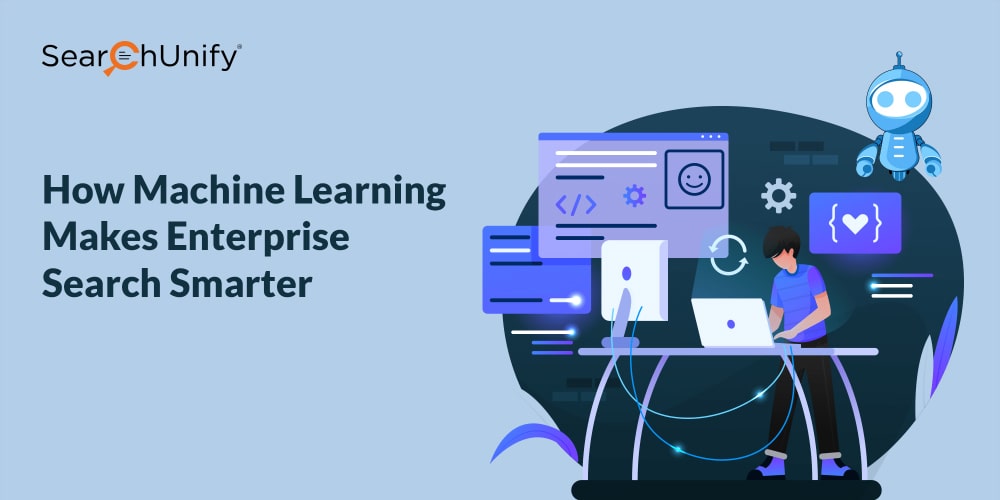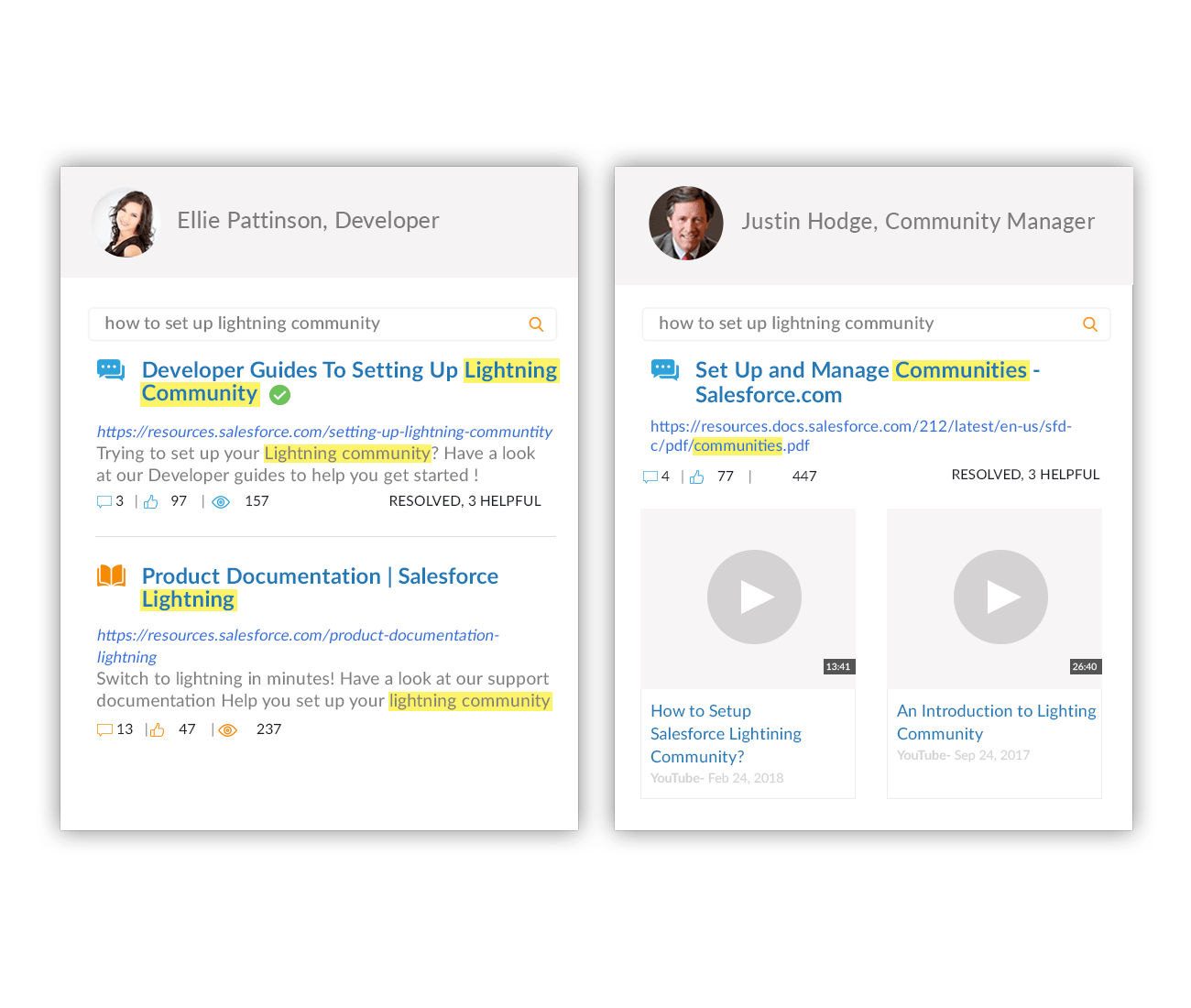
Investing in AI technologies is amongst the topmost priorities for support leaders across the globe. According to the Salesforce State of Service report 2019, the adoption of AI in customer service is projected to surge by 143% over the next 18 months.
The same report also says, 64% of customers expect tailored engagement based on past interactions and a unified brand experience. To meet these expectations, companies now realize that they need to harness the power of customer data and improve products, ensure better support and ease self-service.
This is where machine learning or ML as it is usually abbreviated to comes in. Machine learning is an application of artificial intelligence (AI) that provides systems the ability to automatically learn and improve from experience without being explicitly programmed.
But before diving into the technicalities and benefits of machine learning, let’s talk about why search, out of all the possible applications of ML, should be the first application you should consider.
Why Search?
Everytime a user types in a search query, they leave behind a plethora of information about themselves and what they were looking for. Let’s just take a simple example of a Netflix or Amazon to make it clearer. Just think of the last time you searched for and watched your favorite comedy show from your Netflix account (or your friend’s) and you will know what I mean. The next time you log in, your feed will be clouded with comic show recommendations or shows “you may be interested in” based on what you watched earlier. This is AI or more specifically ML in action. Obviously with Netflix, there are a lot more parameters in place, like watch times or ratings but search is still an integral part of the personalization that takes place.
In a more B2B scenario, where customers, employees and agents are browsing through self-service or support portals, this personalization and relevance become more crucial. Considering the rich amount of content that resides within an enterprise, an intelligent search engine (powered by machine learning) can help boost knowledge discovery with ease by acting as a central force connecting every channel.
How ML Impacts Enterprise Search
Eases Knowledge Discovery with Relevant Results
As the name suggests, machine learning algorithms constantly evolve and become smarter over time. They take into account a variety of variables before determining whether the search results are the most relevant or not. Some of these parameters include assessing the user search history, articles that deflect cases, user feedback or page rating, query intent, page views etc. Smart search solutions automatically tune search results based on all these factors, ensuring the most relevant results appear on the top of the page. One big takeaway or benefit of this intelligence is also its use in other search-powered applications. Some solutions offer add-ons like recommendation widgets – that provide users with the most relevant or case-resolving articles just before they are about to create a case. Again, this increased relevance is powered by ML algorithms that know which article is proving to be the most helpful or is being used most by your support agents to resolve cases. Some other applications of ML might include things like auto-complete and synonyms, where the system learns from user queries across portals to determine intent.
Takes Personalization to the Next Level
Customers are no longer fooled by the “false” promises of personalization. They can easily distinguish between generic and tailored recommendations so the good old practice of simply feeding them with popular or latest content doesn’t work anymore. They now demand a more user-centric experience.
Fun Fact: 80% of Netflix subscribers’ watch choices come from their personal recommendation engine.
Intelligent search engines make proactive recommendations to users. ML empowers them to analyze the user search behavior and history to learn and personalize these recommendations. For example, for a new user, an intelligent search solution will recommend basic, L1 types of articles to ease onboarding and increase their knowledge. On the other hand, for an old user it will personalize results based on their preferences and the type of articles they interact with. Another great application of personalization is facets. Almost every user that interacts with your search will also interact with the available facets to trim down to the most relevant result. But what if the search engine already understands what type of devices you use, what your problem is related to? An intelligent search solution can extract all this information from your search query to pre-select the most relevant facets for you, boosting personalization and the user experience.

Powers Chatbots that Complement Search
Machine learning brings us a step closer to humanizing responses for user queries. There is a good chance that the last time you interacted with someone on a support portal, it wasn’t an actual human but a chatbot.
AI-powered chatbots complement search. All your community users might not want to use the search box to find answers and help themselves. Some of them like to chat and may ask their questions to the human assistant on your site or community, or is that a virtual assistant?
And what is it that makes the bot’s responses sound human? Yep, you guessed it right – machine learning. Chatbots leverage machine learning with intent recognition (recognizing the type of question that was asked), as well as training themselves over time on the dialogue flows that are successful with users. Bots can be made to get started by teaching them possible user questions using templates of dialogs similar to regular expressions.
Conclusion
It’s high time that you abandon the outdated search model on your enterprise and leverage ML-assisted search that makes the results more relevant for your users and hyper-personalizes their interactions. Circling back to what we said earlier, the future of enterprise search lies in Machine Learning.
We, at SearchUnify, provide an AI-fueled cognitive search that leverages machine learning to give more relevant results. Our search engine offers personalized results after analyzing user behavior. Request a demo & see for yourself!











